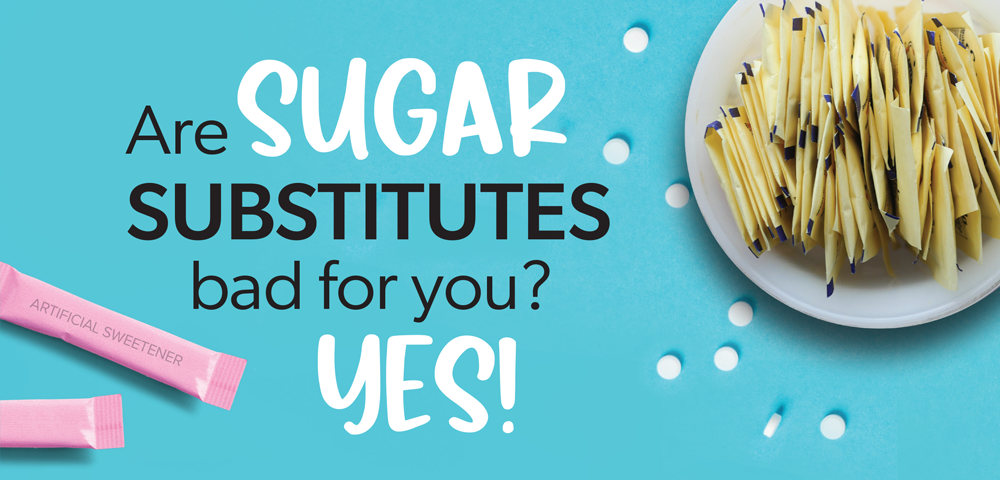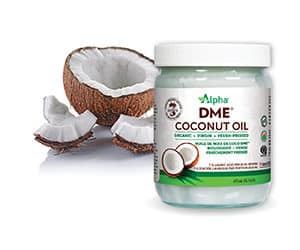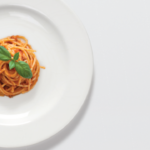
The WHO suggests we keep our daily intake of sugar to less than 50 g, although the average North American consumes closer to 80 g!
Sugar substitutes were once touted as a miracle food because they had no calories, needed no land for growing, and didn’t appear to impact blood sugar levels or weight. Ironically, synthetic sugars, which are not food at all, have now been suggested to cause weight gain, increase cancer risk, and play a role in cardiovascular disease.
Common synthetic sugar substitutes include saccharin, aspartame, sucralose, and erythritol. Some were discovered accidentally, while others were created with the goal of being the next big thing in the low-calorie or no-calorie sweetener world. The money behind these projects is astounding, partly because we know sugar – and sweet things – are addictive, and therefore have the potential to be extremely profitable.
What about real sugar?
The pressure real sugar puts on our bodies includes an increased demand on the pancreas to release insulin. Over time, this can create burnout, causing more sugar to stick around in our bloodstream rather than our cells, damaging sensitive tissues like our nerves, kidneys, eyes, and blood vessels. What starts as insulin resistance leads to type 2 diabetes. Accompanying this is weight gain and obesity, heart disease, and non-alcoholic fatty liver disease (NAFLD). NAFLD is something one-quarter of Canadians have, and the U.S. rates aren’t much better. In 2023, 100 million Americans were diagnosed with NAFLD, with even more being undiagnosed. Sugar intake is a major player in NAFLD, which can lead to cirrhosis (liver scarring), cancer, and liver transplantation, so it makes sense that a substitute for sugar should be a good thing, and one to reduce these risks and create a healthier population.
Unfortunately, they are not a healthier choice, and in 2023, the World Health Organization (WHO) cautioned against the use of sugar substitutes because of their potential carcinogenicity (cancer-causing attributes) and inability to improve weight outcomes. Another unfortunate detail is that these potential health risks have been known for years. In animals, aspartame was shown to be carcinogenic in the early 2000s.
No safe place for our sweet tooth
Humans were not designed to process high levels of sweeteners – natural or not – and our brains were not geared to be rewarded with sweet things on the daily. But many of us don’t realize we are consuming the equivalent of three desserts per day. The WHO suggests we keep our daily intake of sugar to less than 50 g, although the average North American consumes closer to 80 g! Rather than replacing this sugar addiction with another just-as-unhealthy one, focus on real foods like whole fruit to get the sweetness you crave, and read labels. The sugar in wholefoods doesn’t count toward the 50 g limit, while that in anything with a label, from processed grains, vegetables, and fruits, including dried fruits and fruit juice, does.
The sugar balance
It is important to know that the amount of artificial sweetener you would need to consume to affect your health is quite a lot on its own. But we don’t live simple lives. Our world is full of other health hazards and carcinogens, from the sun’s UV light and air pollution to plastics and hormones in our food. So, if you are health savvy and want to reduce your overall risk for disease, artificial sweeteners should be on your NO list, now and forever.














